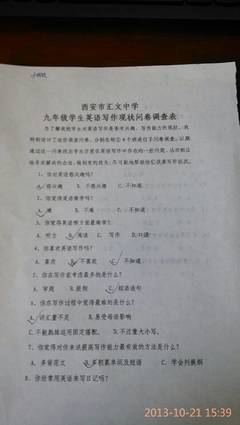进入新世纪,我国普通高中教育一直在变革中发展前行,积累了许多问题亟待破解,加之处在经济社会和教育转型的关键时期,新的问题与挑战层出不穷。下面是小编给大家整理的高中出色英语写作,供大家参阅!
高中出色英语写作:Museums
From Boston to Los Angeles, from New York City to Chicago to Dallas, museums are either planning, building, or wrapping up wholesale expansion programs. These programs already have radically altered facades and floor plans or are expected to do so in the not-too-distant future.
In New York City alone, six major institutions have spread up and out into the air space and neighborhoods around them or are preparing to do so.
The reasons for this confluence of activity are complex, but one factor is a consideration everywhere - space. With collections expanding, with the needs and functions of museums changing, empty space has become a very precious commodity.

Probably nowhere in the country is this more true than at the Philadelphia Museum of Art, which has needed additional space for decades and which received its last significant facelift ten years ago. Because of the space crunch, the Art Museum has become increasingly cautious in considering acquisitions and donations of art, in some cases passing up opportunities to strengthen its collections.
Deaccessing - or selling off - works of art has taken on new importance because of the museum’s space problems. And increasingly, curators have been forced to juggle gallery space, rotating one masterpiece into public view while another is sent to storage.
Despite the clear need for additional gallery and storage space, however,“ the museum has no plan, no plan to break out of its envelope in the next fifteen years,”according to Philadelphia Museum of Art’s president.
高中出色英语写作:Archaeology
Archaeology is a source of history, not just a bumble auxiliary discipline. Archaeological data are historical documents in their own right, not mere illustrations to written texts, Just as much as any other historian, an archaeologist studies and tries to reconstitute the process that has created the human world in which we live - and us ourselves in so far as we are each creatures of our age and social environment. Archaeological data are all changes in the material world resulting from human action or, more succinctly, the fossilized results of human behavior. The sum total of these constitutes what may be called the archaeological record. This record exhibits certain peculiarities and deficiencies the consequences of which produce a rather superficial contrast between archaeological history and the more familiar kind based upon written records.
Not all human behavior fossilizes. The words I utter and you hear as vibrations in the air are certainly human changes in the material world and may be of great historical significance. Yet they leave no sort of trace in the archaeological records unless they are captured by a Dictaphone or written down by a clerk. The movement of troops on the battlefield may "change the course of history," but this is equally ephemeral from the archaeologist’s standpoint. What are perhaps worse, most organic materials are perishable. Everything made of wood, hide, wool, linen, grass, hair, and similar materials will decay and vanish in dust in a few years or centuries, save under very exceptional conditions. In a relatively brief period the archaeological record is reduce to mere scraps of stone, bone, glass, metal, and earthenware. Still modern archaeology, by applying appropriate techniques and comparative methods, aided by a few lucky finds from peat-bogs, deserts, and frozen soils, is able to fill up a good deal of the gap.
高中出色英语写作:Types of Speech
Standard usage includes those words and expressions understood, used, and accepted by a majority of the speakers of a language in any situation regardless of the level of formality. As such, these words and expressions are well defined and listed in standard dictionaries. Colloquialisms, on the other hand, are familiar words and idioms that are understood by almost all speakers of a language and used in informal speech or writing, but not considered appropriate for more formal situations. Almost all idiomatic expressions are colloquial language. Slang, however, refers to words and expressions understood by a large number of speakers but not accepted as good, formal usage by the majority. Colloquial expressions and even slang may be found in standard dictionaries but will be so identified. Both colloquial usage and slang are more common in speech than in writing.
Colloquial speech often passes into standard speech. Some slang also passes into standard speech, but other slang expressions enjoy momentary popularity followed by obscurity. In some cases, the majority never accepts certain slang phrases but nevertheless retains them in their collective memories. Every generation seems to require its own set of words to describe familiar objects and events. It has been pointed out by a number of linguists that three cultural conditions are necessary for the creation of a large body of slang expressions. First, the introduction and acceptance of new objects and situations in the society; second, a diverse population with a large number of subgroups; third, association among the subgroups and the majority population.
Finally, it is worth noting that the terms "standard" "colloquial" and "slang" exist only as abstract labels for scholars who study language. Only a tiny number of the speakers of any language will be aware that they are using colloquial or slang expressions. Most speakers of English will, during appropriate situations, select and use all three types of expressions.
以上是小编整理所得,欢迎大家阅读和收藏。
 爱华网
爱华网



